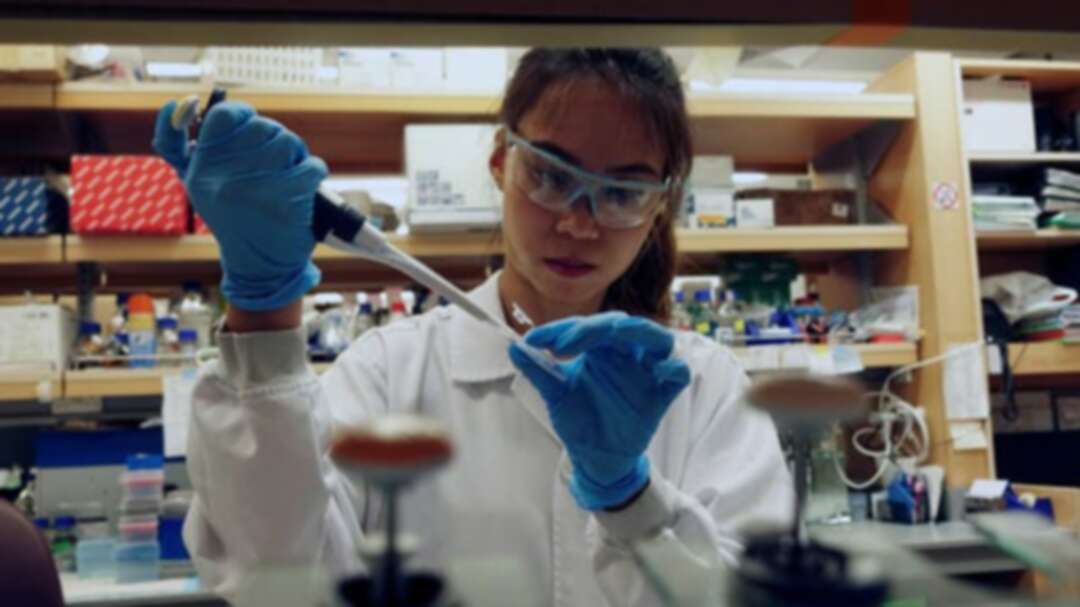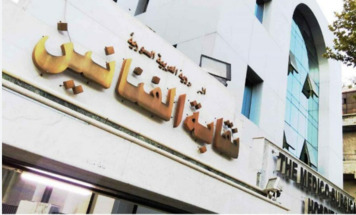-
Coronavirus: Tests to see if people are immune are still unreliable, says minister

No G7 country has yet developed an antibody test which could say with certainty that a person has had coronavirus and is now immune from it, according to statements by the UK’s Health Secretary Matt Hancock on Friday. Coronavirus
Countries across the world are racing to develop and acquire tests for coronavirus, including both nasal swab kits, which diagnose a patient currently suffering from the virus, and antibody tests, which should reveal whether a person has previously had it.
Governments hope that antibody tests could be a long-term solution to ending partial or complete lockdowns, as they would theoretically allow governments to identify people as immune to the disease – having suffered from it before – and send them back to work.
However, it appears no country has yet developed a test that can provide reliable results – with several countries having to return thousands of faulty tests.
None of the G7 countries - Canada, France, Germany, Italy, Japan, the United Kingdom, and the United States – has developed a reliable test, said Hancock after a G7 call on Friday.
“On the G7 call earlier it was clear that no G7 country has found a home antibody test that works,” he said.
“But we continue to search for one
The UK is reportedly considering the rollout of “immunity passports” after mass antibody testing as its solution to the coronavirus crisis. It has provisionally ordered 17.5 million antibody tests.
In March, British company Mologic said it has begun sending prototypes of a 10-minute coronavirus antibody test, which will reportedly cost about $1, to laboratories for validation. Mologic, which created one of the first at-home pregnancy tests, said it is aiming the test to be rolled out by June – assuming the trials are successful.
Germany has also announced plans to roll out mass testing for antibodies as part of its solution.
Large-scale testing for coronavirus antibodies – involving plans to regularly test over 100,000 people – is set to start in April if researchers are given government permission, according to a spokeswoman for Brunswick’s Helmholtz Institute for Infectious Disease Research quoted in German newspaper Der Spiegel.
“You could give immune people something similar to a vaccination certificate that could allow them exceptions from limits on their activities,” Helmholtz Institute epidemiologist Gerard Krause was quoted as saying in Der Spiegel.
Spain, which has the highest death toll from coronavirus in the world at 11,744 as of Saturday, was forced last week to withdraw tens of thousands of rapid-detection tests due to them being unreliable. The fiasco highlights that both rapid-detection and antibody tests are under scrutiny for their reliability.
According to Spain’s health ministry, the government has withdrawn 58,000 Chinese-made coronavirus testing kits after they accurately detected the virus only 30 percent of the time.
The health ministry said it bought the kits from a Spanish company who had acquired them from a Chinese manufacturer and had the necessary paperwork.
“The first tests on the rapid testing kits were carried out simultaneously by a hospital in Madrid and by the Carlos III Health Institute, and as soon as their low sensitivity was discovered, they were withdrawn,” said the ministry.
Inherent problems with antibody tests
One reason why governments are facing problems with antibody tests stems from how the immune system works, experts have suggested.
Antibody tests are designed to establish whether people have previously been infected, as opposed to antigen tests which show if someone has the COVID-19 disease caused by the virus.
If a person has previously been infected with coronavirus and recovered, they will develop a measurable serum antibody, according to Dr. Peter Hotez, co-director of Texas Children’s Hospital Center for Vaccine Development.
“When you get infected with any virus, you develop an antibody response to the virus within one or two weeks and that is usually what clears the infection,” said Dr. Hotez, who is also the dean of the National School of Tropical Medicine at Baylor College of Medicine, in an interview with Al Arabiya English.
However, the tests come with risks of false negatives due to the time the immune system takes to generate antibodies, according to Dr. Timothy Brewer, professor of epidemiology at the UCLA Fielding School of Public Health.
“Because it takes time for the body’s immune system to generate antibodies against a specific pathogen, antibody tests may be negative early in the course of infection,” Brewer was quoted as saying in Quartz magazine.
“Antibody tests sometimes have trouble distinguishing between infections from closely related pathogens,” added Brewer, which means they could lead to false negatives.
These limitations are of concern for countries such as the UK and Germany considering the “immunity passport” solution to the crisis, suggesting that a more reliable test is needed before lockdowns across the world are lifted. levant
source: Tommy Hilton levant
You May Also Like
Popular Posts
Caricature
BENEFIT Sponsors Gulf Uni...
- April 17, 2025
BENEFIT, the Kingdom’s innovator and leading company in Fintech and electronic financial transactions service, has announced its sponsorship of the “Innovation and Sustainable Technology Solutions Competition (GU - IST Solutions), hosted by Gulf University at its main campus.
This strategic sponsorship reflects BENEFIT’s active role in advancing technological innovation and fostering sustainable solutions to future challenges. It also seeks to empower Bahraini youth by enhancing their skills, capabilities, and competitiveness in innovation and solution development—contributing meaningfully to the broader goals of sustainable development across all sectors.
As part of BENEFIT’s active involvement in the competition, the company has announced that Hanan Abdulla Hasan, Senior Manager of Public Relations and Communication, will serve on the competition’s supervisory committee. Her upcoming participation reflects BENEFIT’s forward-looking commitment to championing academic and professional excellence.
Commenting on the occasion, Hanan Abdulla Hasan, Senior Manager of Public Relations and Communication at BENEFIT, said, “We are privileged to support this pioneering initiative, which aligns seamlessly with BENEFIT’s enduring commitment to fostering innovation and nurturing the potential of Bahrain’s youth. Our participation is rooted in a deep sense of social responsibility and a firm belief in the pivotal role of innovation in shaping a sustainable future. Through such platforms, we seek to empower the next generation with the knowledge, skills, and foresight required to develop impactful solutions that address future challenges, in line with the United Nations Sustainable Development Goals 2030.”
Dr. Aseel Al Ayash Dean of the College of Engineering in Gulf University commented, “We extend our sincere gratitude to BENEFIT for their generous sponsorship and support of the Innovation and Sustainable Technology Solutions Competition. This contribution plays an instrumental role in helping us achieve the strategic goals of this initiative, namely, cultivating a culture of innovation and sustainability, encouraging efforts that address the imperatives of sustainable development, and enhancing the practical and professional capabilities of our students and participants.”
The event will bring together a diverse spectrum of participants, including secondary school students, university undergraduates, engineers, industry professionals, entrepreneurs, academic researchers, and subject matter experts representing a wide range of disciplines.
The competition seeks to inspire participants to develop and present innovative, sustainable technologies aimed at addressing pressing environmental, social, and economic challenges. It encourages the formulation of business models that integrate advanced technological solutions with core principles of sustainability. Moreover, it serves as a platform for emerging leaders, entrepreneurs, and innovators to contribute to the advancement of the Sustainable Development Goals, promote the ethos of responsible technology, and demonstrate its transformative potential across various sectors.
Attendees will have the opportunity to view a series of project presentations submitted by participants, covering diverse areas such as eco-friendly product design, smart and sustainable innovations, renewable energy technologies, water conservation and management, waste minimisation and recycling, green architectural solutions, and sustainable transportation systems. Outstanding projects will be formally recognised and awarded at the conclusion of the event.
opinion
Report
ads
Newsletter
Subscribe to our mailing list to get the new updates!






















